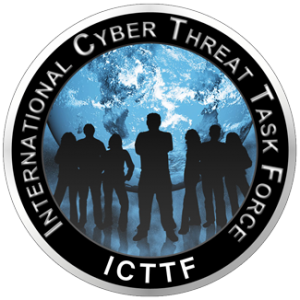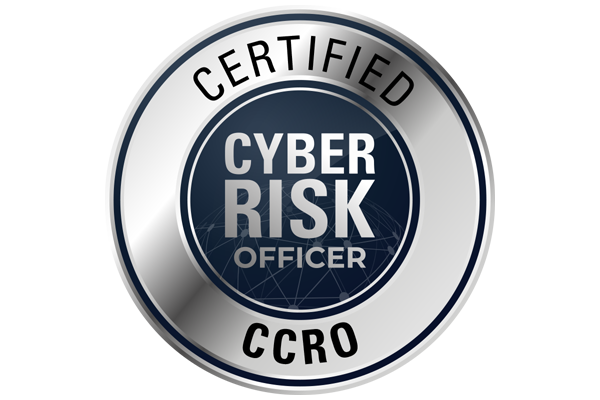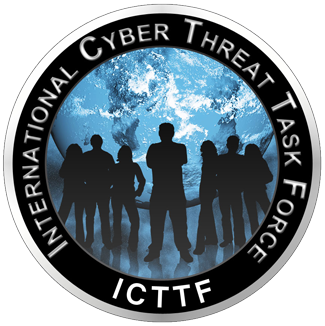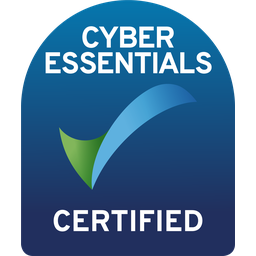About This Course
CCRO Course - 1 Min
The Cyber Risk Officer course equips students with a comprehensive understanding of cyber risk management. The syllabus assumes a non-technical student and covers a range of topics from identification of cyber risks through to risk management options. The course has been designed to equip students with the knowledge, skills and confidence they require in order to protect the digital assets of their organisation and support the efforts of or lead the implementation of a cyber risk framework.
Our Partners
More Info
What Does The Course Cover?
“Learn how to understand, manage and communicate cyber risk strategically within an organization”
This course presumes no technical knowledge and brings students on a journey from understanding the cyber threat landscape to how to develop an appropriate cyber strategy for their organization.
Referencing real life case studies and supported with pragmatic examples of how to manage cyber risk within an organization the course path includes key learning objectives, that students can instantly apply and benefit from in their existing roles.
All students receive one to one feedback and support directly from the tutor on a weekly basis along with live group training sessions supported by continual assessments via online exams.
Written assignments are focused around practical scenarios and involve applying knowledge and communicating key messages with a senior business audience.
“If you are on a board or report to senior leaders in relation to cyber risk, this course is ideal for you”
This course presumes no technical knowledge and brings students on a journey from understanding the cyber threat landscape to how to develop an appropriate cyber strategy for their organization.
Referencing real life case studies and supported with pragmatic examples of how to manage cyber risk within an organization the course path includes key learning objectives, that students can instantly apply and benefit from in their existing roles.
All students receive one to one feedback and support directly from the tutor on a weekly basis along with live group training sessions supported by continual assessments via online exams.
Written assignments are focused around practical scenarios and involve applying knowledge and communicating key messages with a senior business audience.
“If you are on a board or report to senior leaders in relation to cyber risk, this course is ideal for you”
Explore The Modules
The Course is For?
The course syllabus has been specifically designed to be collaborative and bring together business leaders of various disciplines within an organization. They are the key stakeholders in designing, implementing or supporting the cyber risk management program of an organisation. Key cyber risk management stakeholders include:
- C-Suite
- CISO/CSO/CIO or CRO
- Head of IT/Security
- CCO Chief Compliance Officer
- Cyber Security/Risk/Compliance Teams
- Legal
- Procurement
- Head of Business Units
- Technology Leaders / Project Managers
- Management Professionals / Team Leaders
- Digital Consultants
How Do You Learn?
The course is delivered over 8 weeks and preceded with an orientation module. Every Thursday a new module is added to the course. During the orientation module you will be introduced to your online teaching and technical support network and gain an understanding of the interface and tools. During the orientation phase you complete your student profile and gain an understanding of key milestones and how your assessments are calculated. Training material comprises of rich interactive media such as videos, infographics, activities and course notes. There are many opportunities for collaborative learning via the discussion forums and you can leverage the portal to connect to other students around the world. During the course you can reference the case study example outlined in Module 1 or reference your own organization. During the course students will develop a cyber strategy as part of their assessment, this can be based on their own organization, the case study or a fictitious entity
What Support Do I Get?
Head Tutor
What Our Students Say
CCRO - Certified Cyber Risk Officer's Work Here
FAQ
How Do I Get Certified?
Step One: Apply for Enrollment and Pay the Course Fees.
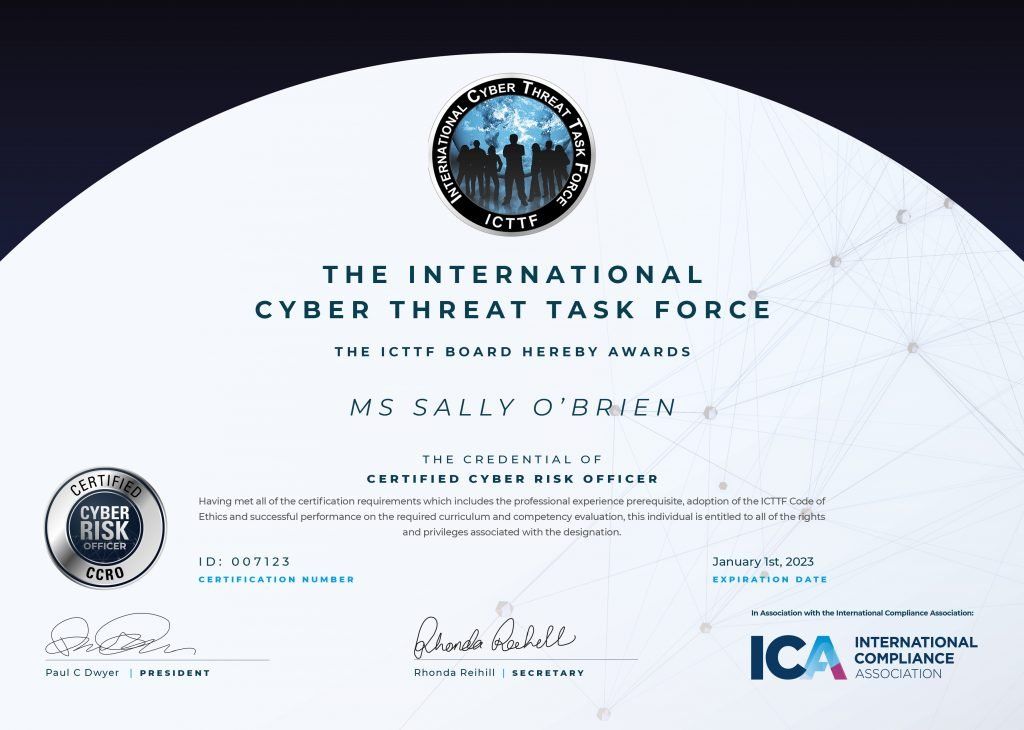
What is a Cyber Risk Officer?
A Cyber Risk Officer is an individual with the knowledge, skills and experience to develop, implement or support a cyber security, risk and/or privacy program at an organization. It is often a secondary role to a primary role such as CISO or CCO. Aspiring CISO’s and other business leaders often become certified cyber risk officers in order to augment and/or validate their background for new challenges and roles, including board levels positions such as NxD’s.
How Does The Course Equip Students?
A comprehensive understanding of cyber risk management.
Will It Help My Career?
There is a Global IT security skills shortages and it has now surpassed four million according to a recent industry survey. The number of unfilled positions now stands at 4.07 million professionals, up from 2.93 million this time last year. This includes 561,000 in North America and a staggering 2.6 million shortfall in APAC. The shortage of skilled workers in the industry in Europe has soared by more than 100% over the same period, from 142,000 to 291,000.
Do I need to have a Cyber Security Background?
No. The syllabus has been developed for a non-technical audience. When technical concepts are referenced in any way, they are fully explained.
How Do I Re-certify?
A CCRO Certification lasts for three years from the date awarded. From June 2023 a recertification exam will be available online at www.icttf.org. There will be a fee of €500 for the recertification exam or any resits required.
What is the Course Format?
The ICTTF – CCRO (Certified Cyber Risk Officer) course is delivered entirely online with a combination of live ILT (Instructor Led Training) sessions with the Head Tutor, recorded videos, downloadable case books and interactive material.
Course Overview
Orientation Module
What is the Pass Mark and How Does the Scoring Work?
The pass mark for successful certification on the CCRO course is 80%
Students are continually evaluated during the course.
Each Week There is an Online Module Assessment/ Exam – 8 in Total
For the First 7 Modules – There are also Written Assignments that have to be Submitted Each Week – 7 in Total
Scores are averaged across all 15 (exams + assignments) evaluated areas. The total average score across all assignments and exams is used to determine if a student is successfully certified.
What is the Cancellation Policy?
Where Are the Terms and Conditions?
Where Will my Certified Qualification be Recognized?
Our cyber risk certifications are recognized globally. This course has been accredited and benefits from dual certification by the International Compliance Association (ICA); CPD UK and other respected bodies.
